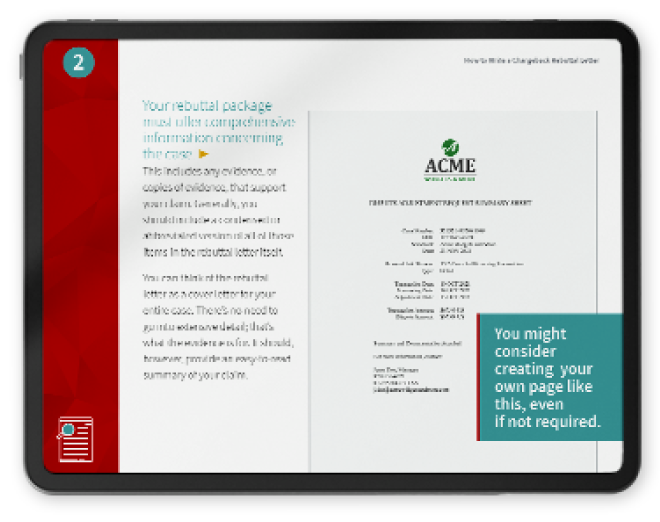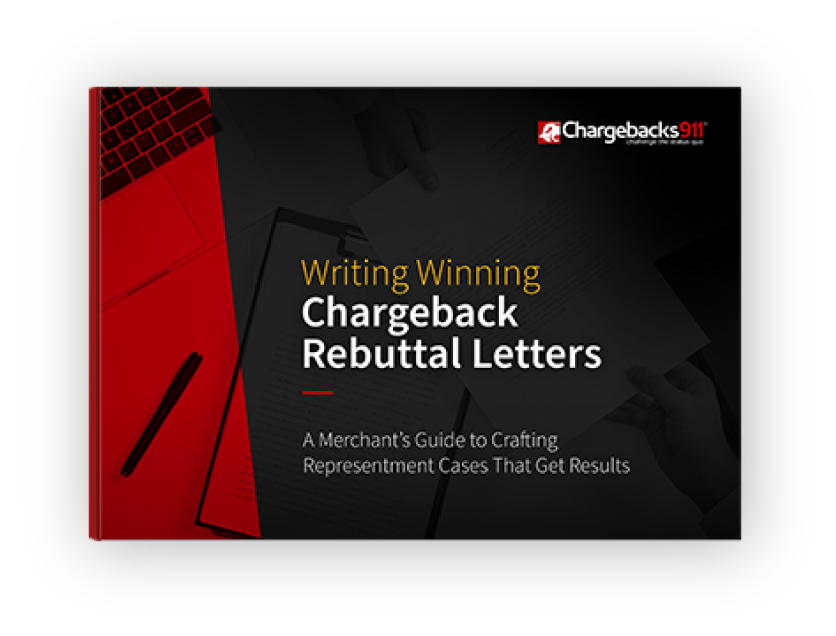Issuer vs Acquirer: What's the Difference between These Types of Banks?
A conventional payment card transaction will involve two key players: the issuing bank, representing the cardholder, and the acquiring bank, which represents the merchant. That’s not to say there’s a clear-cut between the two. In some cases, one bank might play both roles for parties in different transactions.
So, how do these types of financial institutions differ? What are their specific roles in the transaction process? And, when we say “issuer vs acquirer,” is that relationship really an antagonistic one, or more collaborative? Let’s dig in.
Recommended reading
- 7 Common Reasons Why Issuer Declines Happen
- What are Return Item Chargebacks?
- My Bank Account is Under Investigation? What’s Going On?!
- Merchant Identification Number: How to Find Your Merchant ID
- VAR Sheets: Get All Your Documents Ready in 4 Basic Steps
- Internet Processing: Understanding the eCommerce Process
What is an Issuer?
An issuing bank — sometimes called a “card issuer” or simply “issuer” — is a member of a card network that issues credit cards to consumers. They provide banking services to customers, allowing individuals to initiate purchases using payment cards.
Issuing banks work for the customer. The card networks themselves are not heavily involved in individual transactions. They simply provide the framework for consistent, regulated usage, plus rules and standards for payments conducted on their network.
Issuers take on the inherent risks of issuing credit to customers. Issuing banks must accept, restrict, or deny card applications based on the creditworthiness of the applicant. After approving a customer, the issuer’s role includes assessing the cardholder’s account and ensuring the customer has enough resources to cover the cost of each transaction.
The issuing bank essentially provides unsecured, short-term loans to cardholders. In return, they collect monthly interest fees as long as the debt remains unpaid. If the customer completely defaults, however, the bank could be liable for all unpaid debts. In other words, if the cardholder can’t pay the bill, it becomes the bank’s problem.
Learn more about issuing banksWhat is an Acquirer?
An acquiring bank is a financial institution that accepts and processes credit and debit card transactions on behalf of merchants. Sometimes referred to as an “acquiring bank” or "merchant bank."
Acquiring banks provide merchant accounts to businesses and are authorized to process credit or debit card payments on the merchant’s behalf. They ensure transactions are routed to the card network appropriately. Once the issuer releases the transaction amount from the cardholder’s account, the acquiring bank accepts the payment and makes sure the money gets to the merchant’s account.
In some instances, acquirers process transactions themselves. More typically, they will work in tandem with third-party payment processors. They then serve as a middleman between the merchant, the processor, and the card network.
Like issuers, acquirers assume some of the financial risk associated with payments. If a data breach occurs somewhere in the transaction flow, for example, the acquiring bank could be liable for the compromised transaction. To mitigate this risk, acquiring banks must stick to strict PCI-DSS mandates.
Also, they could be liable for any outstanding refund or chargebacks if a business fails. Thus, acquirers must focus on the bankruptcy potential of the merchants they represent. Any business applying for a merchant account is carefully vetted. Potential gains are weighed against possible future losses. The account will not be granted if the risk factor is deemed unacceptable. The merchant might be forced to use the services of a “high-risk” acquirer at a substantial additional cost or to maintain an account reserve to offset the costs of chargebacks.
Learn more about acquiring banksIssuer vs Acquirer: Key Differences
The main differences between the two banks are the party they serve, and the role they play in a transaction. One bank operates on the cardholder’s side of the transaction, and the other mainly focuses on merchants who serve them.
Here’s a quick breakdown of some of the key differences the define the issuer vs acquirer dynamic:
These differences underline the distinct, yet complementary roles that an issuer vs acquirer plays in the payments ecosystem. These positions are vital to ensure that payment transactions can be conducted efficiently.
We can help you decipher the process and language of payment card transactions. Click to learn more.

Issuer vs Acquirer: The Role of Each in the Transaction Process
As mentioned above, the issuing bank's role in a card transaction is to authorize or decline the transaction based on the cardholder's account status. On the other hand, the acquiring bank is responsible for capturing the transaction and collecting the funds from the issuer to settle with the merchant.
This table lays out the issuer vs acquirer roles, point by point:
| The issuing bank: | The acquiring bank: |
| Provides payment cards to customers | Maintains a business’ merchant bank account |
| Approves or denies credit card applications | Processes payments |
| Authorizes or denies a cardholders’ ability to pay for a particular transaction | Passes along consumer transactions, allowing merchant to receive payments |
| Releases the transaction amount to acquiring banks once approved | May provide a line of credit to offset unexpected processing costs, such as chargebacks |
| Allows customers to make payments through card networks | Allows merchants to accept payments through card networks |
Now that we have a better understanding of how these two banks operate and whom they serve, it’s time to answer the next important question…
Are Issuer & Acquirers the Same as Card Networks?
No, issuers and acquirers are not the same as credit card networks. They are distinct entities within the credit card processing ecosystem.
If issuing banks serve cardholders and acquiring banks serve merchants, then you can think of card networks as being the “glue” that holds the broader card payment ecosystem together. They build and maintain card rails that help issuers and acquirers communicate with each other and move funds back and forth.
Unlike banks, card networks like Visa and Mastercard don’t issue cards or custody assets. Instead, they establish transaction rules, set interchange fees, and facilitate payment card transactions between issuing and acquiring banks.
Learn more about card networksIssuers
Authorize payments & manage cardholder accounts
Acquirers
Receive payments on behalf of merchants
Card Networks
Set rules & maintain payment infrastructure
Are Acquirers the Same as Processors?
Not really. Acquiring banks deal with merchants’ accounts and enable them to accept card payments. In contrast, processors communicate with credit card networks, authorize transactions, and transmit payment data between issuers and acquirers.
Sometimes, this distinction is not as clear-cut. Stripe, for example, acts “as both the payment processor and acquirer,” while Adyen, Stripe’s European counterpart, is “a payment gateway, processor, and acquirer in one platform.” But, these are examples of a provider offering multiple services; they’re still not the same service.
Learn more about processorsPreserving Merchant Relationships With Acquirers
Merchants have close relationships with their acquiring banks. But, part of this is that acquirers assume risk when onboarding merchants. This is because some sellers can be prone to chargebacks, which may be costly for acquirers to handle.
If the business fails, they could potentially lose a lot of money. They’re investing in their merchant, in a sense, and those merchants can help maintain good relationships with their acquirers by preventing chargebacks where possible.
To that end, merchants should deploy fraud detection software, use clear billing descriptors, and implement intelligence return and refund policies. These strategies may help merchants stem dispute-related costs and can prevent acquirers from closing or freezing their processing accounts.
There are dozens of simple best practices that merchants can put in place to stop chargebacks. Download our free guide to get crucial insights on how to stop chargebacks from happening.
Preserving Merchant Relationships With Issuers
Merchants who fight frequent chargebacks should not view issuers as adversaries. For the most part, issuers and merchants have the same overarching goals; both parties wish to improve customer and cardholder satisfaction by minimizing risks in a cost-effective manner.
Issuers initiate the chargeback process, so merchants who are thorough and responsive, and who maintain positive relationships with banks, really stand to benefit. But what tangible and concrete things can merchants do to preserve and strengthen their relationships with issuers?
To start, merchants who engage in chargeback representment should provide counterevidence in an organized and timely manner. Sharing shipping records, invoices, correspondences with customers, delivery receipts, and other transaction details can help merchants build a strong case for themselves and. At the same time, they’re making it easier for the issuer to decide who should win the dispute.
Merchants who practice clear and transparent communication, both within the context of the representment process and in broader senses, will convince issuers that they are honest and trustworthy.
Of course, going at it alone is difficult. Most merchants lack the experience and the expertise to support an in-house dispute management department. Using a third-party solution, like Chargebacks911®’s fully-customizable prevention and representment management platform, can be a more cost-effective approach for merchants who nonetheless wish to fight chargeback fraud and improve ties with the institutions that support them.
FAQs
What is the difference between issuer and acquirer?
An issuer is a financial institution that provides credit or debit cards to consumers and manages their accounts. In contrast, an acquirer is a bank that processes credit and debit card transactions on behalf of merchants, facilitating the transfer of funds. Essentially, issuers deal with cardholders, while acquirers work with merchants.
Is Mastercard an issuer or acquirer?
Mastercard is neither an issuer nor an acquirer; it is a credit card network that facilitates electronic fund transfers between banks, specifically between issuers (who provide cards to consumers) and acquirers (who process transactions for merchants). Mastercard provides the infrastructure and standards for transactions but does not directly issue cards or handle merchant accounts.
Is Visa an issuer or acquirer?
Visa is neither an issuer nor an acquirer; it is a global payment technology company that operates a network facilitating electronic funds transfers between financial institutions. Visa sets the standards and provides the infrastructure for transactions but does not directly issue cards or handle merchant accounts.
What is an example of an acquirer and issuer?
One example of an issuer is Chase Bank, which issues credit and debit cards to consumers and manages their accounts. An example of an acquirer is WorldPay, a company that provides payment processing services for merchants, enabling them to accept card payments.
What is the difference between issuing and acquiring transactions?
Issuing transactions involve the bank that issued the card to the consumer authorizing or declining transactions and billing the cardholder. Acquiring transactions relates to the bank that processes payments for merchants, ensuring they receive funds from card sales. At the end of the day, issuers handle the cardholder's side of a transaction, and acquirers manage the merchant's side.














